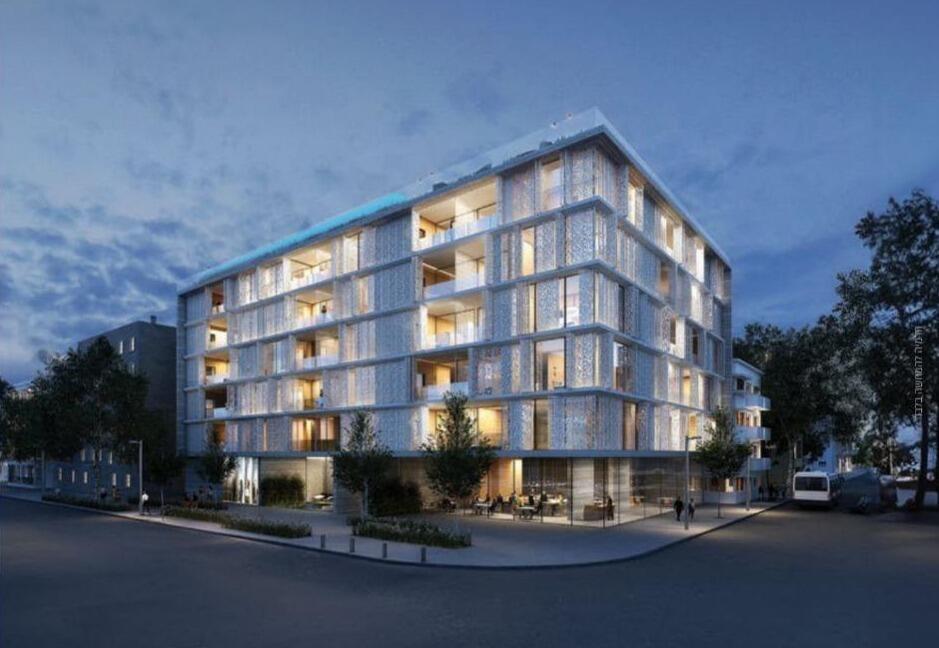Getting your Trinity Audio player ready...
If Hamas or Hezbollah were to attack Israel’s electric grid, many of us could be left without power for days. It’s a scenario few want to imagine. Beyond the food in our refrigerators spoiling, we would lose access to communication as our phones and computers would go dead.
Parkomat, an Israeli company traded since July 2022 on the Tel Aviv Stock Exchange for its robotic parking product, has announced a new solution.
This week, the company introduced Power BackUp, designed specifically for the “blackout scenario” that has gained attention since the October 7 war. The system is considered the first of its kind in Israel that focuses on residential buildings and, therefore, civilians.
Eyal Hefetz, the company’s COO, told The Media Line that during a power outage, Power BackUp would provide continuous electricity for up to 72 hours. He explained that the system is built on the concept of an uninterruptible power supply (UPS), a device that automatically powers equipment in the event of a grid failure, preventing damage.
In the case of Power BackUp, the UPS units would be installed in a designated room or basement of an apartment building and then integrated into the building’s electrical network. The power would be routed to two or three specific outlets in each apartment.
“We call them red sockets,” said Parkomat CEO Giora Naveh. “These outlets continue to provide power during an outage, supplied by a battery energy storage system.”
The system activates instantly, powering critical outlets such as one in the safe room (merkhav mugan or mammad in Hebrew), one for the refrigerator, and a general outlet in the living room for charging phones and other devices. Additionally, the system would power stairwells and elevators. It is designed for large apartment buildings of up to 100 units.
Naveh noted that the system is especially appropriate for new construction projects, while retrofitting older buildings would be more costly and complex.
Israel already has emergency systems in place, primarily generator systems used for essential locations like military bases and hospitals. However, Naveh emphasized that Parkomat’s solution is designed for everyday people.
2 View gallery


One project, on Ahad Ha'am Street in Tel Aviv, where an energy storage system is installed to operate the robotic parking lot during a power outage
(Photo: Courtesy Parkomat)
According to Hefetz, the Power BackUp system is also an improvement over traditional generators, which can be noisy and rely on diesel fuel. Generators often fail if not properly maintained, in contrast to this new generation of reliable, quiet energy backup.
“The motivation to develop this product came from the war and reports about scenarios where electricity supply might be interrupted for many hours,” Hefetz confirmed. Yet even before, the team emphasized, the availability of continuous electricity and energy independence had become growing concerns.
“In recent years, we have increasingly focused on storage systems and the use of renewable energy,” Hefetz said. “For the Israeli real estate market, this product is a game-changer because the storage becomes an integral part of the building’s systems and will autonomously and automatically activate when needed.”
Parkomat began marketing its system to clients who already have its robotic parking solution, Naveh explained. For example, an energy storage system allowing the robotic parking system to operate during a prolonged power outage is being installed in the “Echad” project at 13 Ahad Ha’am Street by the Israel-Canada Group. Several others are under contract.
The Parkomat team is also collaborating with developers, architects, and construction companies to integrate the Power BackUp system into projects under advanced construction and in the planning of new neighborhoods. The company expects that in the near future, residential buildings with Power BackUp systems will provide energy independence.
Nitzan Brandeis, a civil engineer with Henco, involved in the Echad project but not an employee of Parkomat, believes the system will work not only for parking but also for the entire building.
“I think it is a great concept,” he told The Media Line. Like Hefetz, he noted that generators work but are noisy and require extensive maintenance. “This backup battery is much easier to use,” he said.
However, Brandeis acknowledged the real test will be the longevity of the batteries, given their high cost. “We need to make sure they last at least 10 years or more,” he said.
“The acceptance and enthusiasm about this is big,” Naveh concluded. “More people are becoming aware that in a situation where the power fails, they do not want to be sitting in the dark or without the ability to communicate with one another.”


